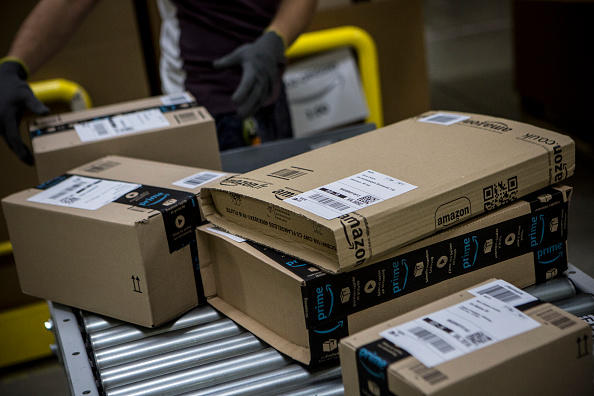In Minnesota, Amazon workers at a Shakopee facility are planning to strike on the first day of Prime Day. During Amazon’s annual shopping holiday, workers will stop working for six hours. Although Amazon has faced pushback from its own workers before, this will be the first time that workers in the United States have planned a protest during the company’s major sale event.
For Amazon workers in Shakopee, one of the major issues is that the company regularly promotes faster delivery times — but they’re the ones who often suffer for it. One of the Shakopee employees organizing the strike, William Stolz, told Bloomberg:
“Amazon is going to be telling one story about itself, which is they can ship a Kindle to your house in one day, isn’t that wonderful. We want to take the opportunity to talk about what it takes to make that work happen and put pressure on Amazon to protect us and provide safe, reliable jobs.”
Engineers from Seattle are planning to fly in to support warehouse workers during their protest, according to CNBC. Activists will also use it as an opportunity to continue pushing Amazon to take action against climate change. Back in April, over 4,500 employees posted a public letter to CEO Jeff Bezos, calling for a public, company-wide plan to achieve zero carbon emissions, along with other demands.
Although the strike is only planned to happen at the Shakopee warehouse, this is a continuation of organizing largely led by East African workers within Minnesota. In 2018, East African workers — mostly Somali — forced Amazon into negotiations after staging a large protest and walk out on December 14.
Issues with Amazon have ranged from workers pointing out that the company’s unreasonable quotas create poor working conditions within the company’s warehouses to religious and racial discrimination and more.
“Here’s the deal: I have never felt more disposable or meaningless than I do at Amazon,” one Amazon employee told the Gawker in 2016.
Earlier this year, three Somali Muslim women working at Amazon’s Shakopee location filed a federal discrimination complaint against the company. Within it, the women alleged that Amazon failed to reasonably accommodate the religious practices of its Muslim employees. In a letter, the civil rights group, Muslim Advocates, outlined that the three women feared taking time to break their fasts during Ramadan, pray or perform ablution, or take bathroom breaks.
Amazon’s obsession with workers maintaining high rates took a toll on many of its Muslim workers during Ramadan. The letter noted that one of the women involved with the complaint — Mrs. B — received her first write-up for falling below the rate while fasting.
“The charges detail that workers did not receive sufficient time to even timely break their day-long Ramadan fasts; workers also reported being told by Amazon management to quit when they requested time off for Eid al-Fitr, one of the most important Muslim holidays,” the letter noted.
In addition to religious discrimination, the workers claim that Amazon “regularly passed over” Somali and East African workers for promotions. White workers received better assignments and treatments than their Somali co-workers “solely on the basis of their race and/or their national origin.”
Perhaps one of the biggest issues with Amazon’s conduct in Minnesota is that it works hard to recruit from low-income, refugee neighborhoods while turning around and mistreating those same employees. In Minneapolis, Amazon sends coach buses to the Cedar-Riverside neighborhood, which is a well-known Somali hub. Those buses take people from the neighborhood to work at the warehouses in Shakopee.
As Amazon continues to grow nearly unchecked, it’s important that people stand in solidarity with its workers. More than 100 workers are expected to strike on July 15. The protest is organized so that workers will strike for three hours at the end of the day shift and three hours at the beginning of the night shift. Workers also plan to rally outside of the warehouse during the afternoon.

